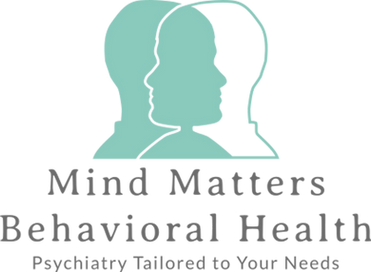"How Does Cognitive Behavioral Therapy Help Anxiety?"
- Teresa Arnold
- May 22, 2024
- 3 min read

Cognitive Behavioral Therapy (CBT) has been around for many decades. You may have come across it through friends, web searches, or your therapist, and wondered what it is and how it can help. Let's take a moment to explore what CBT is.
CBT stands for Cognitive Behavioral Therapy. It is a therapeutic modality developed in the 1960s by Aaron Beck and utilized by mental health professionals in the treatment of anxiety disorders, Obsessive-Compulsive Disorder, depression, and other conditions. Beck saw many mental disorders as cognitive disorders due to their shared problem of what he called "cognitive distortions" or disordered and destructive thoughts that people who suffer from these conditions often share. CBT relies on a straightforward principle: thoughts, emotions, and behaviors are all connected in a feedback loop that moves in both directions.
In other words, if you're running from a bear, your heart will be racing and you'll be panting, which will trigger your nervous system's "fight or flight" response and lead to nervous emotions and fearful thoughts. Similarly, if you are in a crowd of people and have social phobia, you will likely be experiencing many fearful thoughts and negative emotions, and these, too, will trigger your "fight or flight" response and increase your heart rate and breathing rate. It's important to note that this is an entirely natural and normal physiological response to stress. Remember, it keeps you alive when you're running for your life!
Because we don't have time to stop and consider every scenario in which our "fight or flight" may be necessary, our brain takes over this process automatically, and often without our awareness. So the big question is, if this is a natural process, why is it a problem? Well, think back to the point about this being an automatic process. Just as we are trained throughout life to associate danger with wild animals, fires, and car accidents, some people may experience trauma, influences, or other adverse events in life that trigger their brains to associate danger with things that are otherwise harmless (like social interactions or flying). Once these associations are formed and cataloged in our brain, our "fight or flight" may be triggered when these things are experienced. Our brains in these moments can't tell the difference between running from a bear and talking at a party: it triggers the same feedback loop. CBT targets this loop.
CBT is a structured approach aimed at interrupting and resetting the brain's automatic mental connections related to perceived dangers. The therapy begins with a full assessment to identify core symptoms and areas of struggle. Sessions typically involve assessing the patient's emotional state, discussing the week's successes and struggles, and challenging cognitive distortions using various techniques. Homework involving practicing these techniques is usually assigned at the end of each session. At the core of treatment is the goal of challenging faulty thoughts and reactions to reduce anxiety. The duration of treatment varies by individual, but typically involves 11 to 16 sessions. In complex cases or when other illnesses are present, treatment may last longer, even several years.
So, now that you have a general idea of what CBT is, how can we know it works? The great news is that CBT has been around for a long time and, therefore, many studies have been done to show how effective it is. The overall consensus among varying studies by major scientific bodies has been that CBT works, and it works well! Originally designed to address anxiety and mood disorders, CBT has since been found to be beneficial for a wide range of conditions, including bipolar disorders, substance use, sleep disturbances, and even weight management. Even better, its evidence-based, structured approach allows individuals to assess their progress in real-time, providing tangible, measurable outcomes in collaboration with their therapist. This wealth of research underscores the versatility and effectiveness of CBT across various domains of mental and emotional well-being.
If you believe that CBT could benefit you, or if someone has suggested that you seek help for your anxiety, reach out and discuss treatment options with your current therapist or search for CBT-experienced therapists online.
*For resources with more information on CBT or anxiety disorders, or if you would like a consult for therapy or medication management, see the Resources and Contact page on my website!


Comments